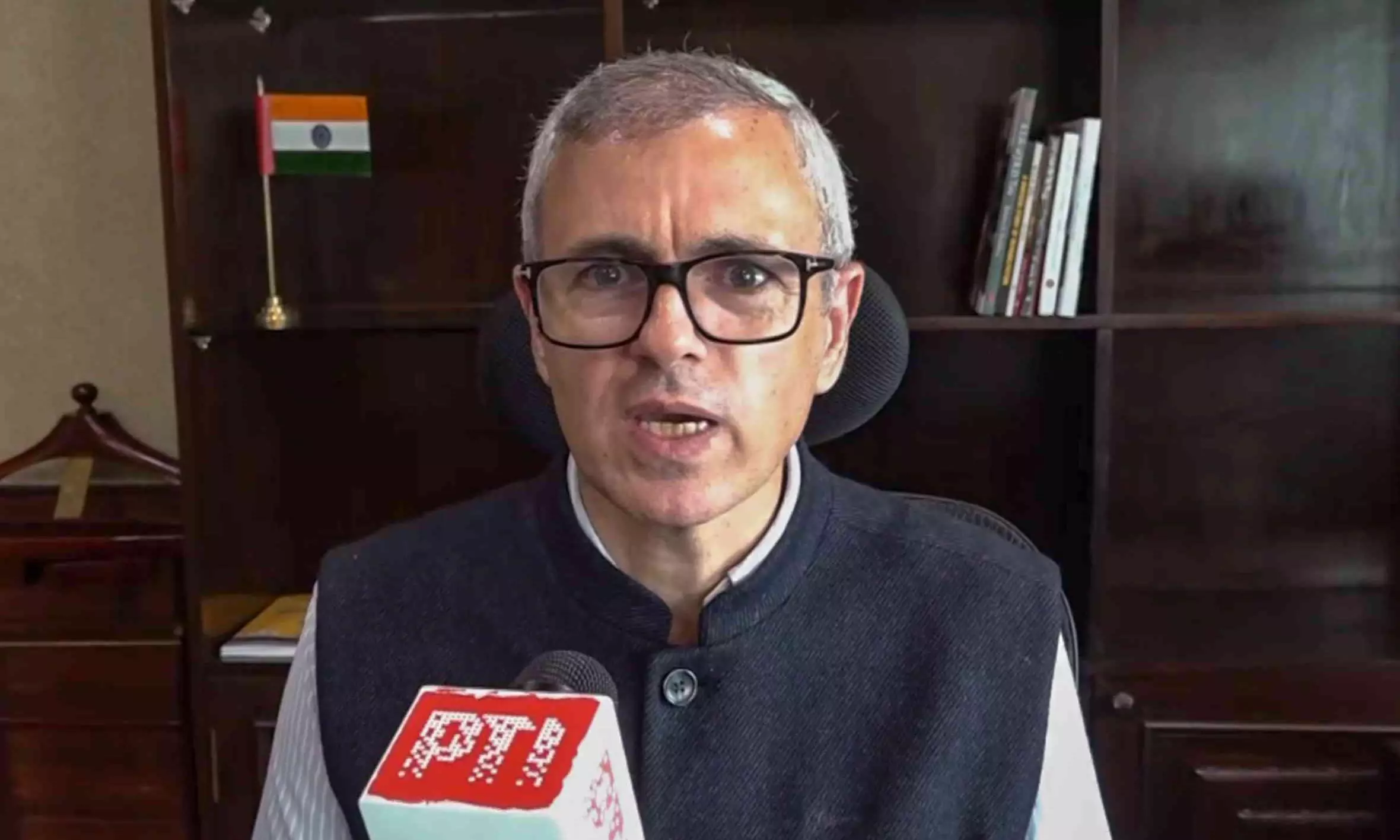
'J-K won't share water with Punjab': Omar Abdullah resorts to plain speak
The 55-year-old chief minister minced no words while making his stand clear on the proposed 113-km-long canal, saying “for now the water is for us”

Jammu and Kashmir Chief minister Omar Abdullah on Friday (June 20) firmly opposed the flow of water from the three western rivers of the Indus system in Jammu and Kashmir to Punjab, reminding the neighbouring state of how it had “ill-treated” J&K for years together.
“Why should I send water to Punjab?” he told reporters on Friday, in a fiery tone that showed the chief minister hasn’t forgotten the years-long dispute between the two regions.
Recalls ‘unfair’ treatment
“I will never permit this. Let us use our water for ourselves first... There is a drought-like situation in Jammu. Why should I send water to Punjab? Punjab already had water under the Indus Water Treaty. Did they give us water when we needed it,” he asked.
Also read | 'Kashmir safe for tourists': Omar asks Centre to act against those behind 'boycott Kashmir'
“We were in dire straits then. They kept us waiting for years on the Ujh multipurpose and Shahpur Kandi barrage projects. After years, some work was done on the Shahpur Kandi barrage.” Asked how Jammu and Kashmir was going to use the western river waters, he said the government would restart the Tulbul navigation project and divert the Chenab water from Akhnoor to Jammu city.
Signed in 1979, the agreement between the two regions saw fruition only in 2018 after the Centre's mediation. The barrage is meant to stop the flow of water from River Ravi to Pakistan.
“Kitne saal unhone humein rulaya. (They made us cry for so many years),” Omar told reporters on Friday.
‘Will cater to J&K first’
The 55-year-old chief minister minced no words while making his stand clear on the proposed 113-km-long canal, saying “for now the water is for us”. “We will use the water first, and then we will think about others,” he said.
Also read | ‘Not intimidated by cowardly acts of terror’: Omar holds Cabinet meet in Pahalgam
After the Pahalgam terror attack on April 22 that left 26 people dead, India has kept in abeyance the Indus Water Treaty of 1960 with Pakistan. Under the treaty, brokered by the World Bank, the water from the six rivers of the system were divided between the two countries. The eastern rivers of the Ravi, Beas and Sutlej were given to India and the western rivers of the Indus, Jhelum and Chenab were given to Pakistan, with India permitted limited, non-consumptive use of the latter.
Media reports last month said the Indian government had decided to divert water meant for Pakistan under the Indus Water Treaty for use in the northern states of Punjab, Rajasthan and Haryana. The Jal Shakti Ministry is working on infrastructure development on a war-footing to implement the decision.

